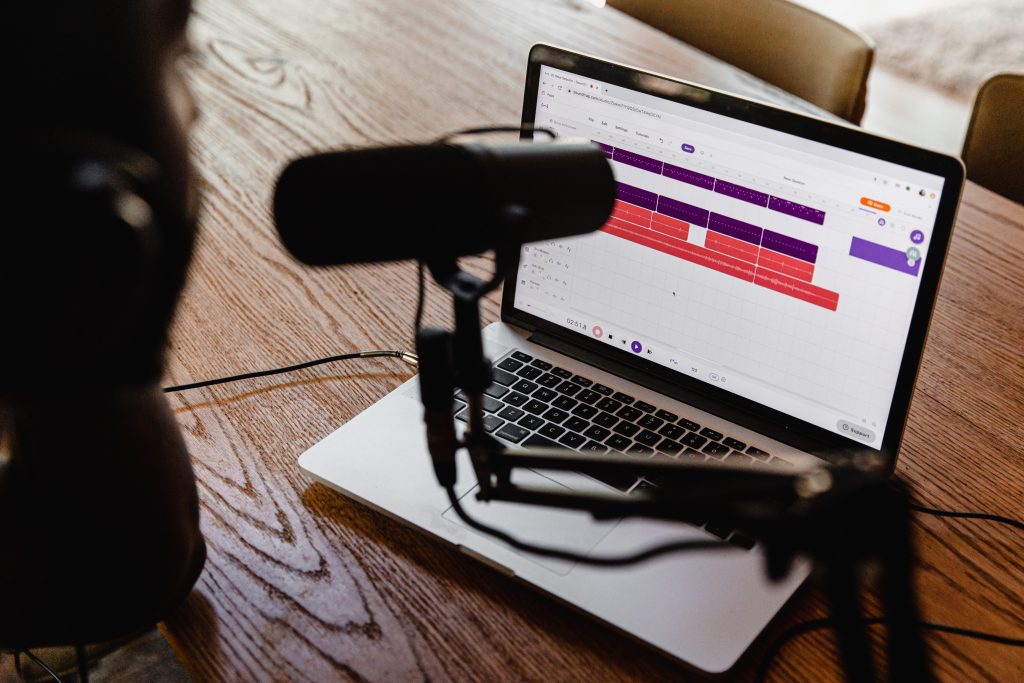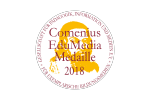Recently, we put into words why audio’s so powerful. But have you considered what kinds of audio would actually work for your content? Chances are, you might want some help. We’ve detailed some of the many possibilities for you.
Why, again?
In short, we love using audio as content because it’s easy. Interacting with it doesn’t require effort. You don’t have to sit down to watch or read. You can do it wherever, whenever: working out, driving, or when you’re doing that big spring cleaning that you’ve been saying you would do for months.
Next to this, sound does wonders for our memory and emotions. Research at Aalto University in Finland has found that educational apps that incorporate audio improve knowledge retention.
So, now we’ve shortly recapped why audio’s great, let’s talk about what forms and shapes sounds come in.
Podcasts
Undoubtedly, podcasts have the future for audio content. The range of possibilities with podcasts is hughe, and the amount of listeners is hard to trace, that’s how hard it is growing. Some of the most popular podcasts have millions of listeners! And although it’s hard to determine how many podcasts there are out there, it has been estimated that there are over two million podcasts with 48 million episodes.
Some podcasts surround topics such as politics, business, economics and health. In this case, many producers use interviews with experts in order to clarify the subject. Other podcasts involve the hosts having a chat together about any topic. There’s also plenty of podcasts out there that involve storytelling in order to highlight a subject. These are often prized for their emotional appeal and skill to create suspense.
Want to get started with podcasting yourself? Here’s some steps to starting:
- Get a microphone. This does not have to be a costly one – there are many affordable microphones for podcasting out there that are for lower budgets.
- Plug the microphone in your computer and install some kind audio recording/editing software. There are some which are for free, too.
- Start talking! Consider what subject you want to talk about. What can you offer the audience that others can not?
- Time to edit the recording! Not much work is often needed here, except for some cutting if large breaks were taken. The quality of the sound might also need a touchup.
- Upload the file to a hosting service, such as Spotify or Soundcloud. That’s it, you’re podcasting!
- Don’t worry about the quality in your first steps – it will be awful and will get better with time. Even the greatest talk show host had to start with his or her first words into a microphone.
Lacking inspiration? Here’s some of our podcast favorites, demonstrating the wide range of topics you can work with:
- The Europeans (Are We Europe): looking at politics and culture around the continent, this podcast highlights stories that don’t get much attention in the national media. It offers great insights into those topics that deserve our ears.
- 1619 (New York Times): “An audio series from The Times observing the 400th anniversary of the beginning of American slavery,” that’s how they describe it themselves. Hosted by Nikole Hannah-Jones, this interesting podcast sheds light on the 400th anniversary of the first slave ship landing on American shores. What do we like about it? It’s a tough, at times dusty subject, made interesting and super relevant.
- You’re Wrong About: in this podcast, journalists Sarah Marshall and Michael Hobbes analyze a major historical event that is not remembered all that correctly by the public. For example: the Stanford Prison Experiment. There’s no doubt that this podcast will change your mind.
- Modern love (New York Times): no heavy topics here – or are they? In this podcast, conversation and storytelling are combined to tell the real life love stories of real people. You might know it from somewhere else: Modern Love has been turned into a series for Amazon Prime.
- Planet Money (NPR): $$Kaching$$, this show is all about how money, the economy and business works. In one episode the journalists bought a barrel of oil from a tiny oil well somewhere in the US hinterland and followed its path onto the world market to understand how it gets its price
- Hardcore History (Dan Carlin): A cruel show about how the world went through many many wars to become what it is today. Dan Carlin works with historians to point out just how incredibly bloody our history has been so far and what that meant to the people at the time.
- How I built this (NPR): Interviews with entrepreneurs who tell their story. It always looks soooo easy from the outside and most of the time it was super difficult inside.
Why is it that we’re such fans of podcasts? Well, first and foremost, podcasts are great learning tools. Researchers have described podcasts as a way to “extend and improve lectures beyond classrooms, especially for courses such as music, theatre and languages.” This last subject, language learning, extends far beyond listening to podcasts made in particular for this purpose. Research has proposed that any podcasts in a second language can help to improve one’s understanding of this tongue.
According to Jham et al., podcasting has many advantages:
1) Podcasts allow listeners to hear recordings on demand, i.e., when and where the listener wants
2) Podcast production is relatively inexpensive, which obviates any need for costs to be shifted to the listener (this is why almost all podcast “subscriptions” are free)
3) Podcasts are digital and thus available online to anyone in the world with online access
4) Podcasts are simple and user friendly
Audiobooks
Audiobooks are similar to podcasts, but take it to the next level. The market is growing strongly in the past few years, generating up to 1.2 billion dollars in revenue in the United States alone in 2019! A shame to not tap into this huge market, in our opinion.

While audiobooks are similar to the effects of podcasts, there’s another reason that we’re excited about them. Results from research suggest that audiobooks can help people who have suffered from a stroke to be mentally stimulated, evoke new thoughts and recollect memories. Other research points out that those recovering from a stroke, if not every audiobook user, can find a positive distraction in listening to audiobooks. This is demonstrated by the following quote of a participant in the research:
“it stopped me sitting and thinking feeling sorry for myself, you know, it gave me a purpose”
Not only that, audiobooks can also serve as a private moment of me-time:
“Being off [work] I had all this, not spare time, but I had all of this time and I had something…. I could do. Obviously family and things, but obviously the books…was just for me”
All in all, it’s clear that audiobooks don’t only serve stroke survivors with their content: we can all massively enjoy listening to audiobooks wherever and whenever, feeling mentally refreshed afterwards.
Radio
No, we’re not saying you should start your own radio channel, although it’s of course always an option. Instead, we’re talking about radio advertisements! You might think that radio’s outdated, but a large share of daily commutes is spent listening to the radio.
In fact: 47 percent of Europeans listen to the radio on an almost daily basis, providing for a huge market. In 2022, just the German radio industry alone is forecasted to see around 3.9 billion euros in revenue!
In particular for local businesses, radio advertisements are great at reaching the audience. And: a fun jingle will help the audience remember you better. As we wrote before, audio can give that extra push for your memory to retain specific information. Just be careful that you’re not annoying with the jingle, instead. Otherwise, you might just repulse potential clients.
Sources
- https://www.lemonlight.com/blog/the-growth-of-audio-content-and-what-it-means-for-your-business/
- https://www.synergyxyz.com/14-types-of-audio-content-in-marketing/
- https://www.format.com/magazine/resources/art/start-your-own-podcast-creative-guide
Header image: ConvertKit




